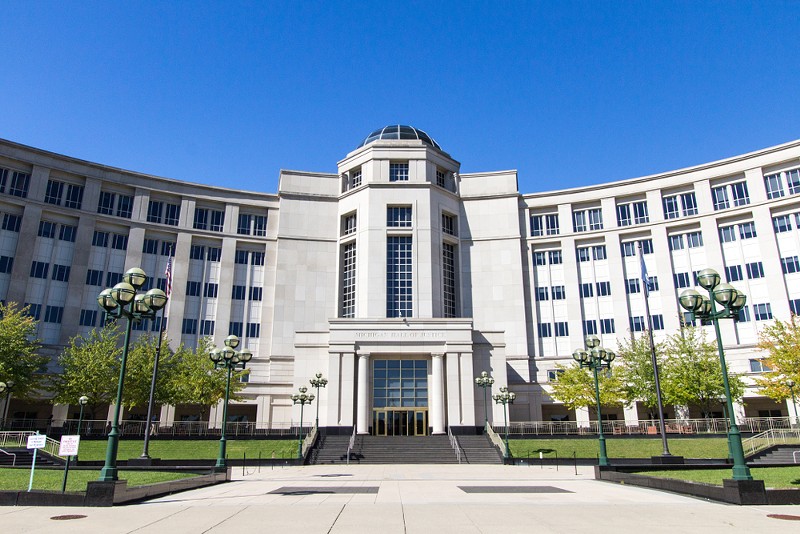Michigan Supreme Court says state's medical marijuana law doesn’t overrule local zoning ordinances
[
{
"name": "GPT - Leaderboard - Inline - Content",
"component": "35519556",
"insertPoint": "5th",
"startingPoint": "3",
"requiredCountToDisplay": "3",
"maxInsertions": 100
}
]
The Michigan Supreme Court said on Monday that the state's medical marijuana law does not overrule local zoning ordinances, breaking from previous Court of Appeals cases.
DeRuiter v. Township of Byron concerned a Kent County municipality that prohibited registered caregivers from growing marijuana at a commercial property. The Michigan appeals court said the ordinance conflicted with the medical marijuana law, which allows cultivation in an "enclosed, locked facility."
But in a unanimous opinion, the Supreme Court said the Michigan Medical Marihuana Act law doesn't conflict with the Michigan Zoning Enabling Act, and that municipalities have the authority to limit where caregivers can grow medical marijuana plants.
As a result, existing caregivers may be forced to shut down their operations if they violate local zoning ordinances. The court also said that Byron Township can require caregivers to pay a fee before using a building to grow medical marijuana.
It's a new era for marijuana in Michigan. Sign up for our weekly weed newsletter, delivered every Tuesday at 4:20 p.m.







